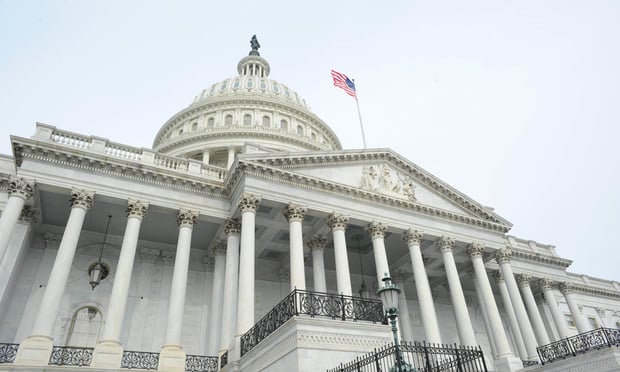Financial institutions were assessed about $5.2 billion in fines, penalties and forfeitures in connection with Bank Secrecy Act and anti-money laundering violations from January 2009 to December 2015, but none of the fines stemmed from NCUA enforcement actions, the Government Accountability Office reported.
In total, the GAO reported financial institutions paid $12 billion during that period, but that total included fines related to foreign bribery and violations of U.S. sanctions program requirements.
A footnote in the GAO's financial crimes report stated NCUA officials said they had not assessed any penalties during that time period.
Recommended For You
There were several reasons why the NCUA did not assess any penalties, according to NCUA Public Affairs Specialist John Fairbanks.
"While [the] NCUA has not assessed penalties with regard to BSA violations, the agency has taken a proactive approach aimed at avoiding or resolving problems before they get to such a serious level that penalties are assessed," he said. "The NCUA pursues alternate administrative resolution as well as early and aggressive supervision to resolve problems. Those efforts, combined with credit unions' differing business models, results in almost no major material violations that grow to a level that would warrant civil money penalties."
He said the agency responds to any significant BSA violation with immediate and frequent contact to ensure all violations are addressed before monetary penalties must be assessed.
Fairbanks said that in some cases, the NCUA has taken more drastic measures, for example, by closing the credit union or placing it into conservatorship, in part due to major failures in the credit union's BSA program.
He said several credit unions have been fined by regulators, citing cases such as the Brooklyn, N.Y.-based, $1.7 billion Polish and Slavic Federal Credit Union in 2000, and more recently, the $3 million North Dade Community Development Federal Credit Union in Miami Gardens, Fla.
"Finally, a large number of credit unions' book of business remains less complex and narrower than most banks, and a large number of credit unions continue to avoid risk by limiting or avoiding certain services, like international wires, cash-over-the-counter services and services to businesses – such as only providing consumer services," Fairbanks said.
A future, updated GAO report may tell a different story. Credit union officials and members in several states have been charged with money laundering subsequent to the current report, although it is unclear whether the NCUA will impose civil penalties on those institutions.
Also, last year, the Wall Street Journal reported the Financial Crimes Enforcement Network, an interagency task force, was investigating 50 credit unions that might be particularly vulnerable to money laundering.
The oversight agencies that collect the fines do not get to keep the proceeds of the collections, the GAO said. A portion of the money goes to the government's general fund. In addition, a portion may go to the Justice Department's Asset Forfeiture Fund and the Treasury Department's Forfeiture Fund. That money may be used to provide funds to crime victims or law enforcement agencies that participated in investigations.
BSA and money laundering enforcement is likely to tighten as a result of the Panama Papers disclosures and recent terrorist activity abroad. Democratic senators have already asked the Treasury Department to examine whether any U.S. entities were involved in the asset hiding that was disclosed in the Panama Papers.
© 2025 ALM Global, LLC, All Rights Reserved. Request academic re-use from www.copyright.com. All other uses, submit a request to [email protected]. For more information visit Asset & Logo Licensing.







